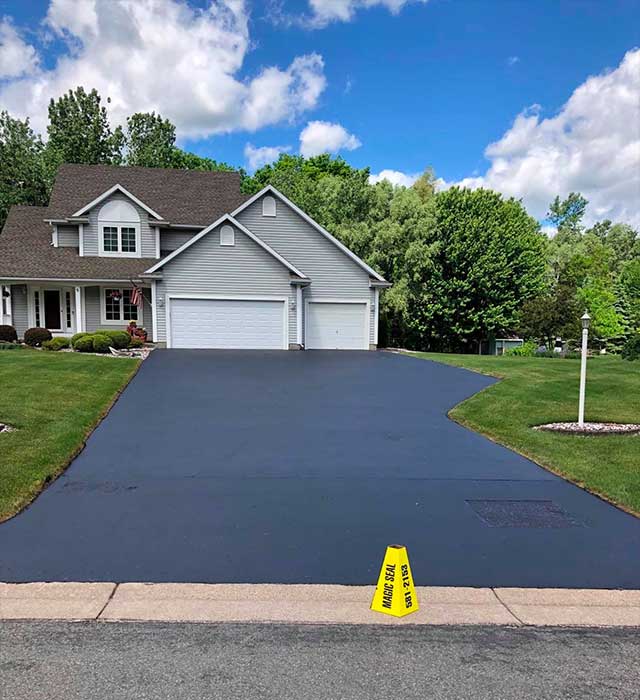Raise Pavement Performance: Cold Mix Asphalt Sealing Strategies
Raise Pavement Performance: Cold Mix Asphalt Sealing Strategies
Blog Article
Cold Mix Asphalt Vs. Hot Mix Asphalt: Which Is Right for You?

Structure Distinctions
Cold mix and warm mix asphalts differ dramatically in their make-up, with distinct attributes that impact their performance and applications. Cold mix asphalt is produced by emulsifying the asphalt binder with water and an emulsifying agent before blending it with accumulation. This method enables the asphalt to be workable at reduced temperature levels, making it optimal for temporary repair work and for use in cooler climate condition. Hot mix asphalt, on the other hand, is manufactured at high temperature levels, usually in between 300-350 ° F, which aids to attain better compaction and an extra durable last item. The hot mix asphalt manufacturing procedure entails warming the aggregate and asphalt binder independently before integrating them at the asphalt plant.
Moreover, chilly mix asphalt often tends to be much less thick and extra adaptable than warm mix asphalt. This versatility makes it far better matched for locations with higher levels of activity, such as driveways or roads with heavy traffic. In contrast, warm mix asphalt is recognized for its high longevity and resistance to rutting and fracturing, making it a recommended option for freeways and high-traffic roadways where durability is important.
Installation Refine Differences
The process of setting up cool mix and warm mix asphalt shows significant variances in their procedures and needs. In comparison, warm mix asphalt requires an extra fancy setup procedure. Due to the heating demands, warm mix asphalt installations are normally lugged out by professionals with specific tools, ensuring a more long-term and structurally sound result.
Sturdiness and Long Life Elements
When taking into consideration asphalt options, durability and longevity are important variables to review for long-term sidewalk efficiency,. Warm mix asphalt (HMA) is known for its outstanding resilience and durability. The heats during the blending and laying procedure permit for far better compaction, leading to a denser and stronger sidewalk framework. This leads to HMA being a lot more immune to hefty web traffic loads, extreme weather condition conditions, and the effects old compared to chilly mix asphalt (CMA)
In terms of longevity, HMA commonly outshines CMA because of its premium strength and resistance residential properties. HMA pavements have a longer life span, needing much less constant repairs and upkeep, which can translate to set you back savings in the future. In addition, HMA pavements are extra quickly personalized to satisfy details task needs, better enhancing their toughness.
Cost Factors To Consider
Considering the financial implications is an important facet when assessing the option between warm mix asphalt (HMA) and chilly mix asphalt (CMA) for sidewalk jobs. While the first price of warm mix asphalt is typically higher than that of cool mix asphalt, HMA commonly gives an extra cost-efficient remedy in the lengthy run due to its superior sturdiness and durability.
In enhancement to material prices, it's necessary to consider the expenses connected with installment and maintenance when contrasting HMA and CMA. Inevitably, the choice between HMA and CMA must take right into account not just the first expense but likewise the lasting financial implications to determine the most economical option for the certain sidewalk job.
Environmental Impact Comparison
Contrast of the ecological impacts in between hot mix asphalt (HMA) and cold mix asphalt (CMA) exposes distinctive differences in sustainability techniques. HMA production needs high temperature levels, leading to boosted energy usage and greenhouse gas discharges. The procedure also releases unstable organic substances (VOCs) and harmful air contaminants (HAPs) right here into the atmosphere. On the other hand, CMA is created and used at lower temperatures, minimizing power usage and emissions significantly. The lower manufacturing temperature levels of CMA cause lowered gas intake and reduced degrees of carbon dioxide exhausts, making it a more eco-friendly choice.
Moreover, the use of CMA typically entails reusing existing asphalt sidewalk, promoting resource conservation and decreasing the amount of waste sent out to land fills. This reusing aspect additionally boosts the sustainability of CMA contrasted to HMA. In general, when considering the environmental impact, CMA becomes an extra ecologically lasting option because of its lower power demands, reduced discharges, and the home capacity for reusing existing products. By choosing for CMA over HMA, roadway building and construction jobs can contribute favorably to ecological preservation efforts.
Verdict
Finally, the choice in between cold mix asphalt (CMA) and warm mix asphalt (HMA) relies on various variables such as make-up, installation process, longevity, longevity, expense, and ecological impact. asphalt patch repair. While CMA offers a quick and cost-efficient service for small fixings, HMA makes sure premium sturdiness and durability for hefty traffic areas. Consider these aspects meticulously to determine which kind of asphalt is the best choice for your paving needs

Taking into consideration the monetary implications is a critical aspect when reviewing the choice in between warm mix asphalt (HMA) and cool mix asphalt (CMA) for pavement jobs. While the first expense of warm mix asphalt is generally greater than that of cold mix asphalt, HMA usually offers a much more cost-efficient solution in the long run due to its Click Here remarkable durability and durability. asphalt repair.Contrast of the environmental influences in between warm mix asphalt (HMA) and cold mix asphalt (CMA) exposes unique differences in sustainability methods.In verdict, the selection between cold mix asphalt (CMA) and warm mix asphalt (HMA) depends on various elements such as composition, setup process, toughness, longevity, expense, and ecological effect
Report this page